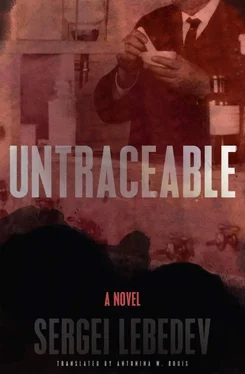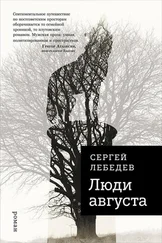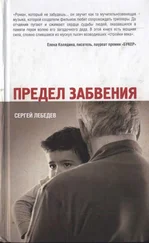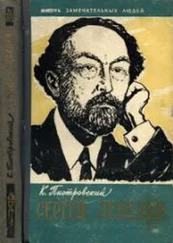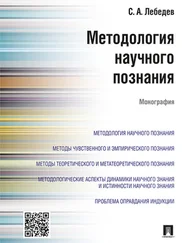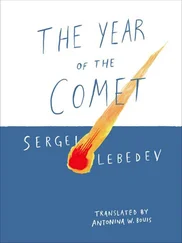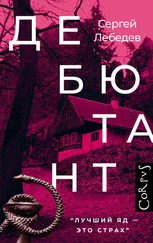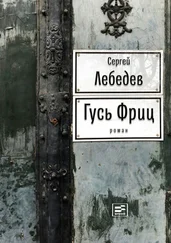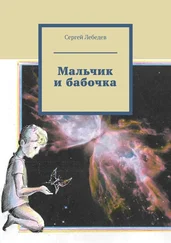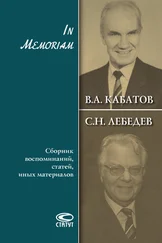Сергей Лебедев - Untraceable
Здесь есть возможность читать онлайн «Сергей Лебедев - Untraceable» весь текст электронной книги совершенно бесплатно (целиком полную версию без сокращений). В некоторых случаях можно слушать аудио, скачать через торрент в формате fb2 и присутствует краткое содержание. Город: New York, Год выпуска: 2021, ISBN: 2021, Издательство: New Vessel Press, Жанр: Современная проза, на английском языке. Описание произведения, (предисловие) а так же отзывы посетителей доступны на портале библиотеки ЛибКат.
- Название:Untraceable
- Автор:
- Издательство:New Vessel Press
- Жанр:
- Год:2021
- Город:New York
- ISBN:978-1-939931-90-0
- Рейтинг книги:3 / 5. Голосов: 1
-
Избранное:Добавить в избранное
- Отзывы:
-
Ваша оценка:
- 60
- 1
- 2
- 3
- 4
- 5
Untraceable: краткое содержание, описание и аннотация
Предлагаем к чтению аннотацию, описание, краткое содержание или предисловие (зависит от того, что написал сам автор книги «Untraceable»). Если вы не нашли необходимую информацию о книге — напишите в комментариях, мы постараемся отыскать её.
Untraceable — читать онлайн бесплатно полную книгу (весь текст) целиком
Ниже представлен текст книги, разбитый по страницам. Система сохранения места последней прочитанной страницы, позволяет с удобством читать онлайн бесплатно книгу «Untraceable», без необходимости каждый раз заново искать на чём Вы остановились. Поставьте закладку, и сможете в любой момент перейти на страницу, на которой закончили чтение.
Интервал:
Закладка:
The old woman led them upstairs, unlocked a room that was unexpectedly clean and cozy. Two beds by the walls, standing lamps, a wardrobe, an embroidered tapestry on the wall: hunters trumpeting, a dying stag at their feet.
Shershnev undressed and set his watch alarm for six. He fell asleep hearing Grebenyuk turning in his bed, the squeaking of old springs compacted by hundreds of bodies.
He knew tomorrow all would be well.
CHAPTER 22
Neophyte.
Kalitin left for his house to get the substance; the pastor could not stop him. The word remained in the church’s dusky interior.
So familiar. So far away.
Neophyte.
It reminded Travniček of his early years in the ministry. The first confessions he had heard. There were so many later on, brief and lengthy, eloquent and forced, sincere—and false from first word to the last… In forest villages, in mining settlements, in workers’ cities, he essentially read books of other people’s sins, saw the same birthmarks of evil, its monotonous faces. He learned to see the simple rules, unsophisticated themes, the particular features as clear as the signs of a profession, work calluses that differed in miners and loggers, carpenters and fishermen. He figured out the logic of the calendar: sins of autumn and spring, winter and summer; sins of poverty and wealth; vice and injured virtue, past and future; sins of strength and weakness, power and slavery, hope and despair, love and loathing.
There were few confessions he could remember; probably for the best, thought Travniček. His memory was sound, and pastoral service had never become a routine; but once he released people from their sins, he did not keep them inside himself. They vanished, leaving behind empty, identical husks of words.
There was only one confession he knew almost by heart; it sounded inside him unspoken.
Franz. An old man, a former soldier. He had a beer hall and was chairman of a hunting club; every autumn, hunters gathered at his bar and drove to the distant bulrush lakes—and then returned to lay out rows of geese and ducks in the backyard. The next day Franz would come to church; he smelled of beer and singed feathers. Travniček was young then, and Franz always tried to take a dig at him, blame him for his inexperience. The former priest, Father Haschke, had understood him better and performed the service with befitting dignity. His sins were simple and strictly doled out, like an old man’s shots of schnapps.
Before death, Franz called for him. The old man lived in one section of the beer hall, in the back rooms. When Travniček arrived, the bar was full of the noisy regulars, billiard balls cracking and cash register ringing; the pastor was offended by this marked contempt for the mystery of death. Franz lay in a bed, unexpectedly large for his desiccated body.
“The beach. It was at the beach,” the old man said, and Travniček, truly still a student, a neophyte then, expected to hear a story about a long-ago salacious adventure by the sea, a seduced woman or girl.
“It was at the beach,” Franz repeated. “They kept coming at me. What else could I do? Lieutenant Huber ordered us to open fire. So I shot. The bearer fed me the ammunition belt, and I shot.”
Franz talked about the overheated barrel that had to be cooled; the thickness of the fortification concrete of their bunker; of how communications were interrupted; he told him about the long, long day. Travniček heard and saw only hundreds of American soldiers, jumping out of landing barges, running along the sand, and dying, dying, dying; he pictured the awful and empty tautology of evil, lasting and not lasting, reduced to a single movement of the machine gun’s trigger.
“Our bunker was called ‘Franz,’” the old man said. “I thought it was a good omen.”
The old gunner died.
Now waiting for Kalitin to come back, Travniček thought about that story. He felt only exhaustion, immeasurable exhaustion. Kalitin’s confession, the story of his life, had astonished the pastor—but not at all the way the chemist had wanted.
Travniček saw the same tautology, the chain reaction of evil; a pile of rotting fruit, infected by a black worm. He remembered all the things that had been sent to him—good things people needed, separated by an evil will from their purpose, turned—contrary to their essence—into weapons of torture; piled into a mountain of the meaningless.
Travniček knew that Kalitin would return. With his gas.
Well. He would wait here, in the church.
Neophyte.
How strange… Too bad Kalitin didn’t know.
Neophyte.
That’s what they called him in the operative file they had on him. Neophyte. The nickname the people from the gray house had given him. Others had more impressive, more colorful names: Inspirer, Missionary, Fanatic, Captain, Pilgrim, Apostle, Prelate, Treasurer, Miser. That was revealed once the archives were opened.
When they started the file on him, they considered him a neophyte. A green boy. A beginner. Useless. The informers, the agents—he was Neophyte for them. A proper noun. That’s what they wrote in every report, in every surveillance account, as if they were trying to make the nickname stick.
He hadn’t wanted to request his file at first. He sensed how painful and bitter it would be. He was far from the thoughts of the pastors who had gone into politics; vengeance did not seem to be the direct work of human hands. But then he remembered the most obvious: “There is nothing hidden that will not be made known.” He went to the archives; he wanted to know, for it was wrong to reject the truth. It didn’t matter if there was not only truth but also lies and deceit in the papers of the gray house; only the side that was visible and beneficial to the spies. So what. He would know for whom to pray.
He saw his life through their eyes. An undemanding series of the commonplace. Because of the dry manner of narration, the days plucked out and added to the file were particularly similar to one another. But he could feel that even through the distilled monotony of reports, his torment, his insubordination, his work of resistance broke through in a way he had not seen before. He realized there in the archives how long he had not given up. It was a human miracle, and he had manifested it. He had renounced, but before that he had stood in the fire. There was no pride in that understanding and no justification.
Travniček did not look at his watch. Time decided nothing. He just had to be ready.
Long ago he had heard on the radio that Father Jerzy Popiełuszko had been recognized as a martyr. The pastor thought then of him and the many others killed—weren’t they worthy of living until freedom? Until the prison was destroyed. They were his invisible interlocutors, the distant confessors of his thoughts. Why was the miracle of salvation manifested in him? He, who was worse. Unworthy.
“Others suffered mockery and beatings and shackles and prison. They were stoned, sawed, tortured, died by the sword,” he told himself then. “And all of them commended in their faith did not receive what was promised. Because God foresaw in us something better, for without us they could not achieve perfection.” It was then that he understood there was no point in looking for the devil’s hand in their death, to talk about God’s permission; there are times and countries that are like minefields, and the walker knows where he steps.
And now it was in them, in their unforeseen sacrifice that he saw his lighthouse, his support.
He fiercely regretted telling Kalitin he should make a public confession. He had overtaken the voice of conscience. He had been rash. He had been severe and insistent, tried too hard to persuade him. Then he realized that his regret was in vain; he did not know, could not know, what image would still appear to awaken conscience; how things would be resolved there, in the solitude of the night, between the fugitive and the Creator.
Читать дальшеИнтервал:
Закладка:
Похожие книги на «Untraceable»
Представляем Вашему вниманию похожие книги на «Untraceable» списком для выбора. Мы отобрали схожую по названию и смыслу литературу в надежде предоставить читателям больше вариантов отыскать новые, интересные, ещё непрочитанные произведения.
Обсуждение, отзывы о книге «Untraceable» и просто собственные мнения читателей. Оставьте ваши комментарии, напишите, что Вы думаете о произведении, его смысле или главных героях. Укажите что конкретно понравилось, а что нет, и почему Вы так считаете.
